As economic and political challenges continue in Venezuela, UNHCR reports that more than 7.1 million Venezuelans have sought refuge in other countries—with more than 2.5 million people making their way to Colombia. Most arrive seeking opportunities for security, work, and hope. However, the trauma of leaving home and the need to find work and secure housing creates significant challenges.
In Colombia, our Acogida team works with vulnerable Venezuelan migrants and locals from host communities to foster a welcoming environment. A nine-month rental support program, a key component of Acogida, gives Venezuelans a way to start building a self-reliant life in Colombia.
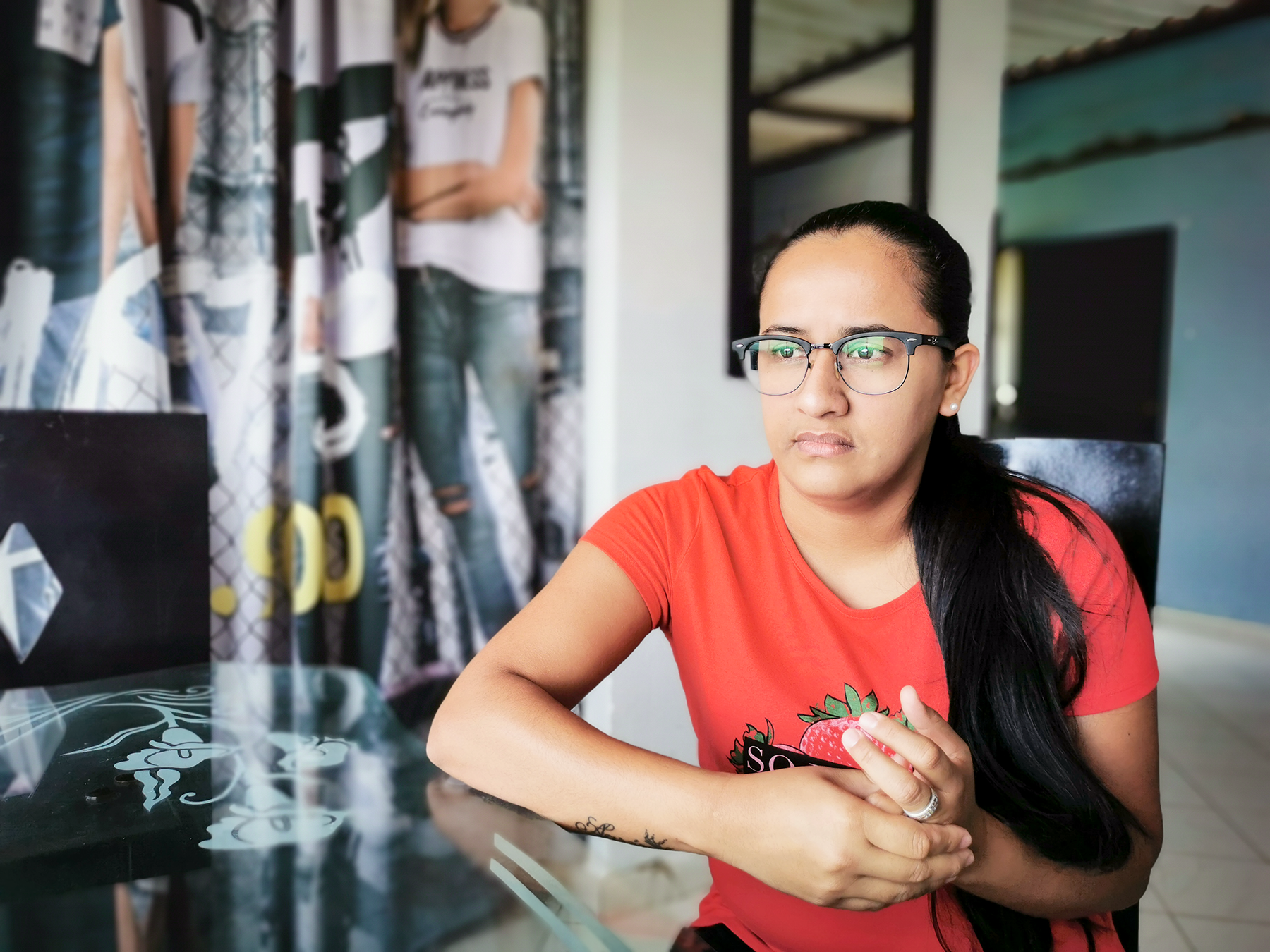
Kimberly, a Venezuelan migrant who lives in Colombia with her young family, received a nine-month rent subsidy through the Acogida program, which is funded by the U.S. Department of State’s Bureau of Population, Refugees, and Migration.
The rent subsidy provides a pathway to secure safe housing, which then allows for greater flexibility in finding better livelihoods and caring for their families. Acogida, funded by the U.S. Department of State’s Bureau of Population, Refugees, and Migration, works with local property owners to find reliable housing options for subsidy recipients. As a result, Venezuelan families find a safe place to live while also helping local Colombians earn a living.
“A safe home gives people the peace of mind needed to focus on recovering emotionally and accessing services,” said Adriana Padilla Sanchez, our regional coordinator for Caribe. “Above all, [the assistance] gives families stability, which contributes to their integration in the host community.”
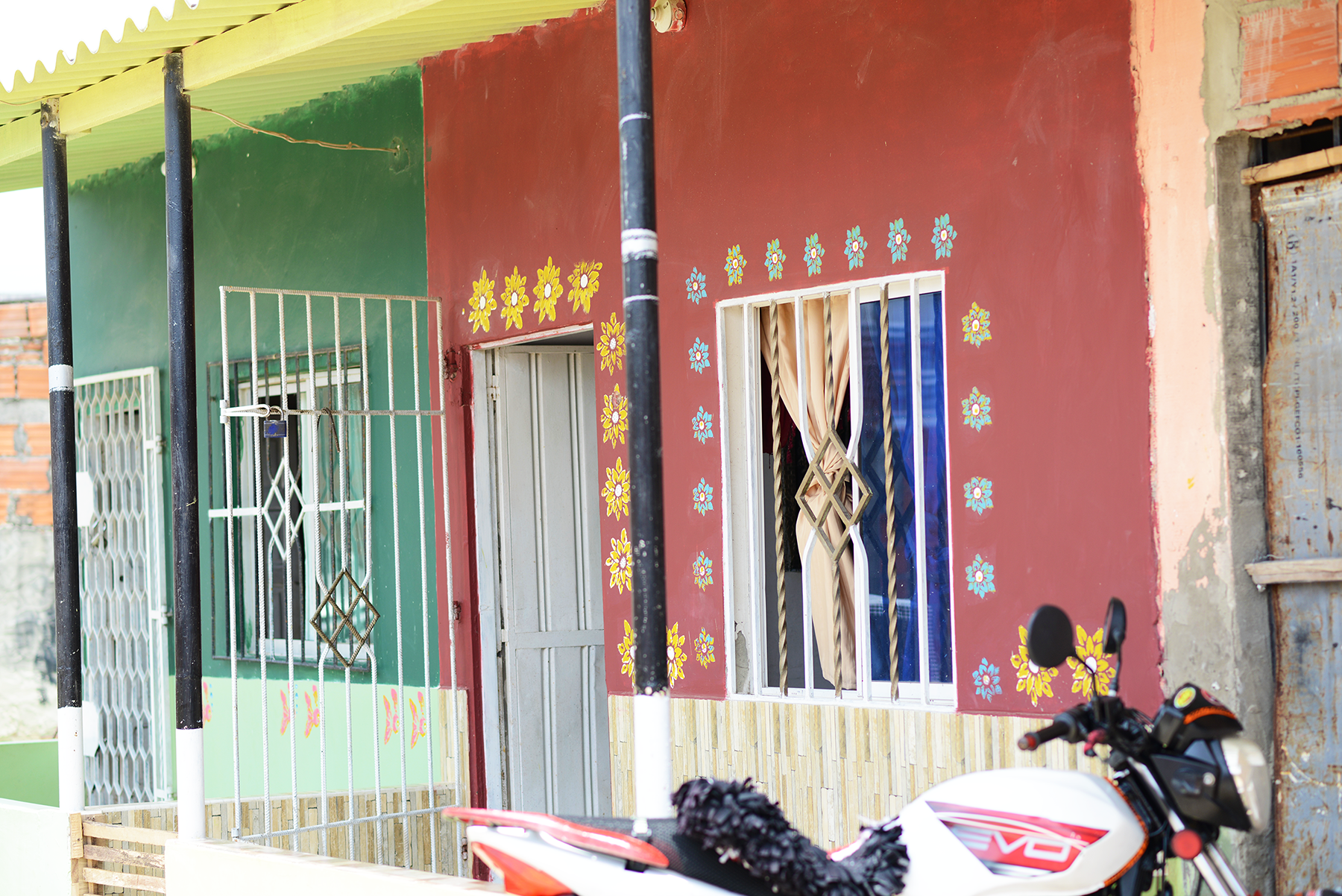
With more than 2.5 million Venezuelans living in Colombia, access to a rent subsidy provides migrants with the economic agency to secure safe housing.
By the time the first cycle of rent subsidies ended in November 2022, our team found that two-thirds of the 334 families were able to continue paying rent on their own. The benefits of Acogida’s rent subsidy program go beyond financial security. With rent paid, families can focus on other important aspects of their new life in Colombia: investing in education, pursuing a new job, or taking care of other pressing needs.
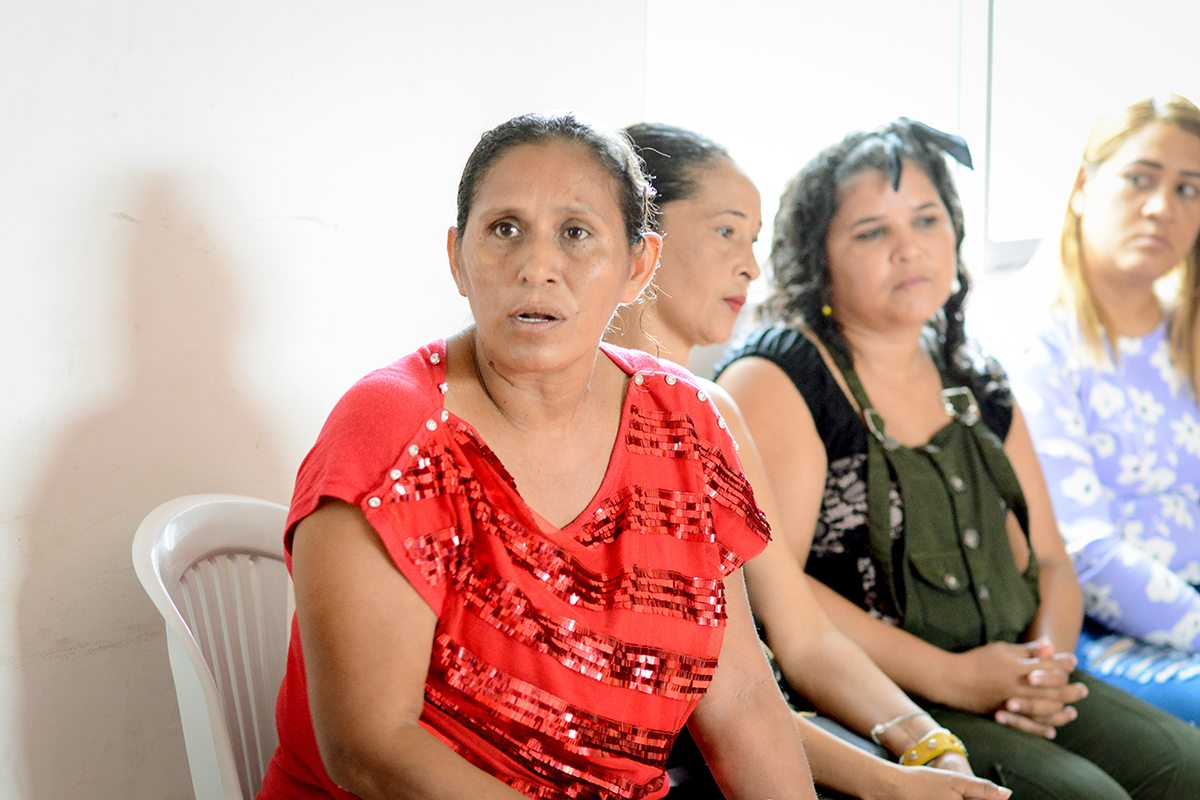
Beatriz, left, felt financially secure enough when receiving the rent subsidy to work hours that allowed her to care for her disabled daughters.
Beatriz: A caregiver and breadwinner for her daughters
Beatriz is a support recipient living near Santa Marta. As the primary caregiver for her two daughters with disabilities, she has been unable to find a job that covered her family’s expenses and accommodated her caregiving responsibilities. Beatriz applied for and received Acogida’s rent support. Without the burden of paying rent each month, she has been able to work flexible hours collecting recyclable materials, which allows her to tend to her daughters during the day. “The rent subsidy helped us to buy a motorcycle and that enabled me to work at certain times and places in the city, in addition to having more time with the girls,” Beatriz said. By the end of the program, she and her husband had saved enough for the next five months of rent. Like Beatriz, more than half of subsidy recipients were able to save money or pay off debts during the program.
Rudy: Saving money to support her family in Colombia and Venezuela
In the same neighborhood, Rudy lives with her husband, children, and grandchildren who migrated from Venezuela. With many mouths to feed, she and her husband sought out whatever work they could find but were limited to what they could reach by foot. Once Acogida started paying their rent, the family could save up for a secondhand motorcycle. This allowed Rudy to take a steady job at a salon in another area while her husband works as a moto-taxi driver. “I feel stronger,” Rudy said. “I feel confident that we can continue paying rent using the motor bike and working as a manicurist.”
As Rudy and her husband save more of their earnings, she hopes to continue supporting her disabled brother, who lives in Venezuela.
Dani: Her family’s protector and provider
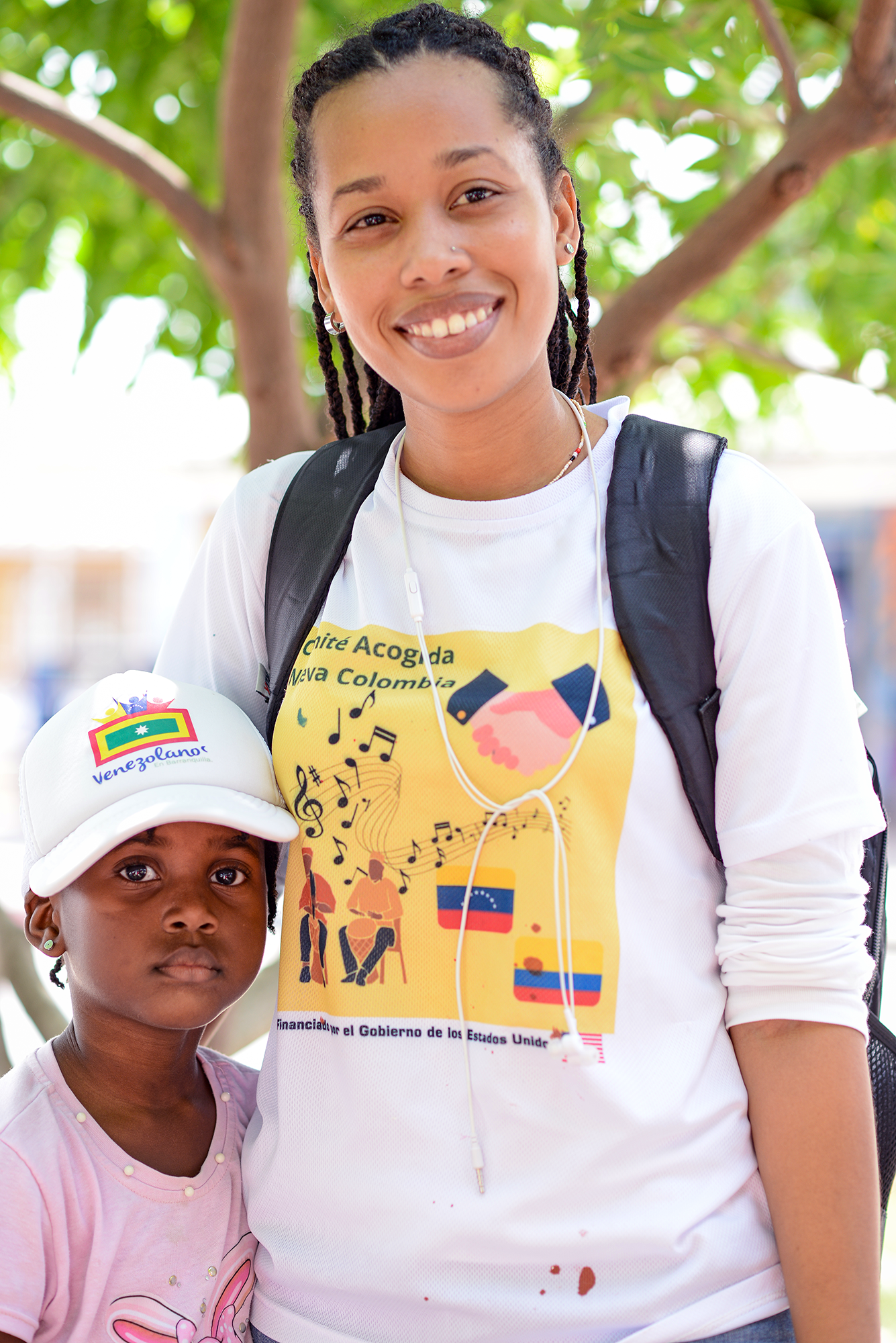
Dani, right, found a safe home for her family and developed new skills through the Acogida program.
Across the bay in Barranquilla, Dani lives with her mother and sisters. When the family first arrived in Colombia, they had so little money that they had no choice but to live in an illegal settlement. Without protection or security, Dani barely slept, taking shifts with her mother to keep watch at night.
When Dani joined our local women’s mutual support group, which helps vulnerable women—Colombians and Venezuelans—process trauma and build towards their goals, she heard about and applied for the rental support program. This gave Dani and her family the opportunity to move into a secure apartment. They are among the 96 percent of surveyed families who said they felt safe in their homes while receiving rental assistance.
Acogida changed Dani’s life in more than one way, she said. While receiving the payments, she often facilitated discussions and encouraged peers in the mutual support group. The skills and confidence she built helped her find a job with Acogida’s partner organization, Venezolanos en Barranquilla, doing community outreach and collecting survey data.
“I was able to strengthen my leadership skills, meet more people in my community, and work with more organizations,” she said. “I have a stable job and we still live in the same house that we rented with the rent subsidy. Now we live much more peacefully and safely.”
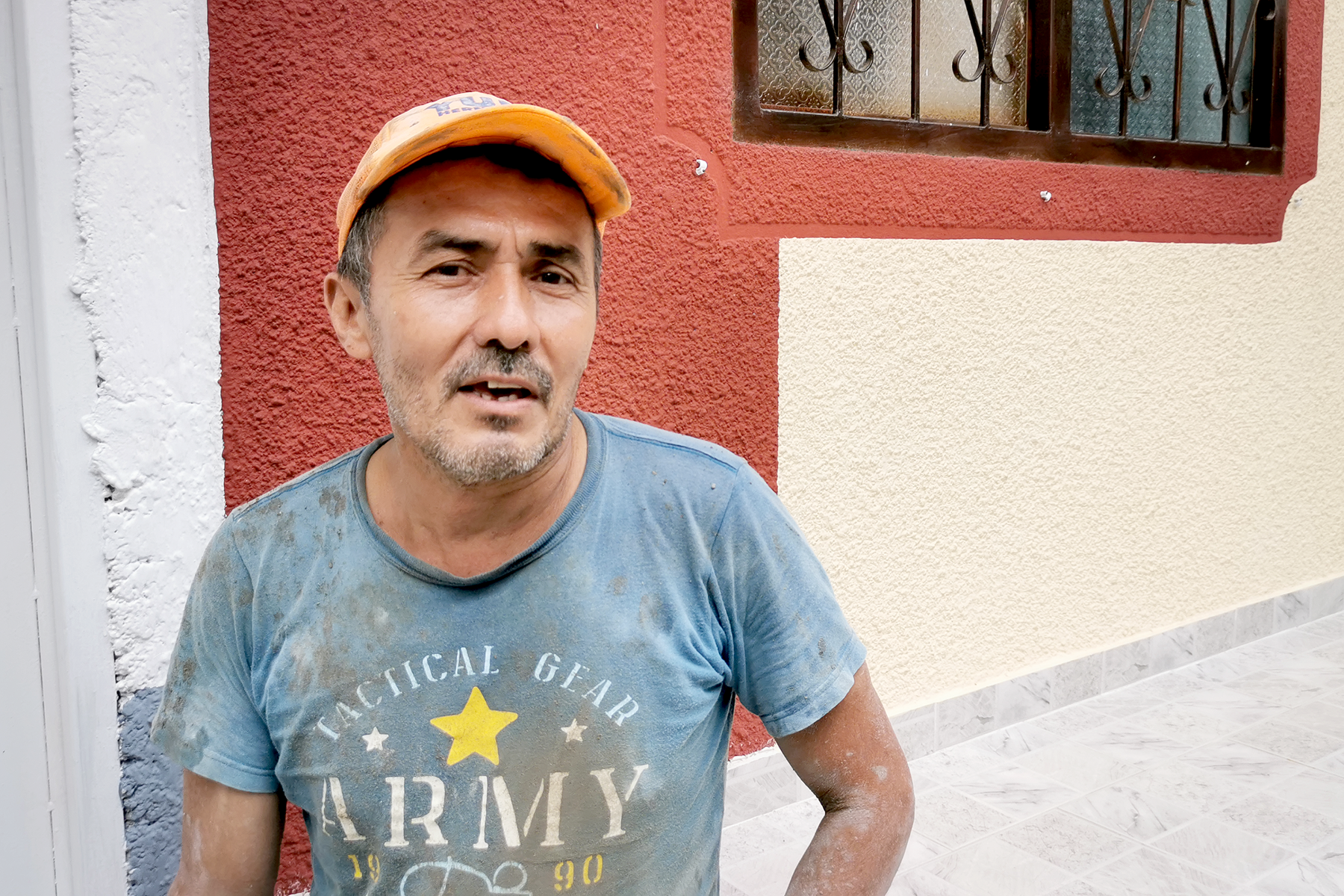
Erwin is a property owner in Colombia who has rented to Venezuelan migrants.
Erwin: A property owner with open arms
Venezuelans often face challenges renting in Colombia. Negative stereotypes and assumptions, and the lack of credit or financial references, can keep migrants from entering the formal rental market, leaving them with few safe housing options.
Erwin, who has owned his house for 27 years, is one of the property owners who has worked with Acogida support recipients. Our team helped Erwin find tenants and set up a formal contract so he could feel at ease about renting his home. He said the Venezuelans living in his property have been good tenants, and he is glad to help a family that is working hard to get by. “We don’t know what tomorrow’s future holds for Colombians,” he said. “It’s a blessing to be able to help someone now with what they need.”
A social and economic ripple effect
When families connect with our team about the rent program, they learn about a range of other available services. Our team helps migrants access medical services, enroll children in school, register for health insurance, and more. When finding a place to live is no longer top of mind, families can invest more in themselves and their futures.
Feeling welcome also allows Venezuelans to become more socially integrated into their host country. With time, Venezuelans report feeling like part of the community. Eighty percent of surveyed rental support recipients said they face no discrimination in Colombia.
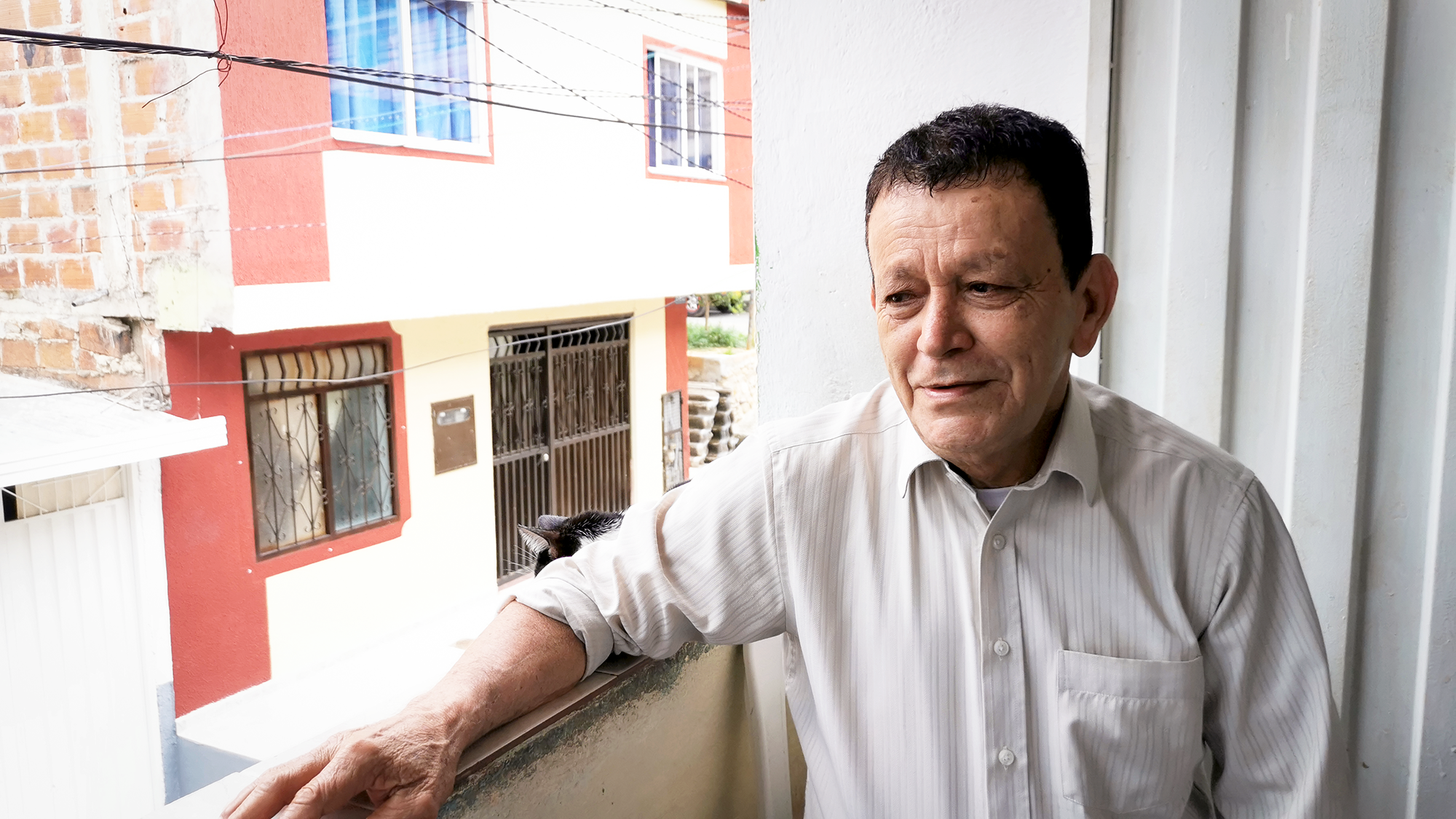
Juvenal rents his property to recipients of the Acogida rent subsidy program in Colombia.
“It is gratifying to witness how each of the women [in the support group] face their fears and their shyness and create a relationship of trust with themselves and then with others,” said Yerlis, an Acogida team member who leads a support group for women. “Then, they build a support network among all of them, going from being neighbors to being friends, and in some cases feeling like family.”
Marleivy, another recipient shared, “Here people are friendly and respectful. We help each other and we collaborate in whatever way we can.”
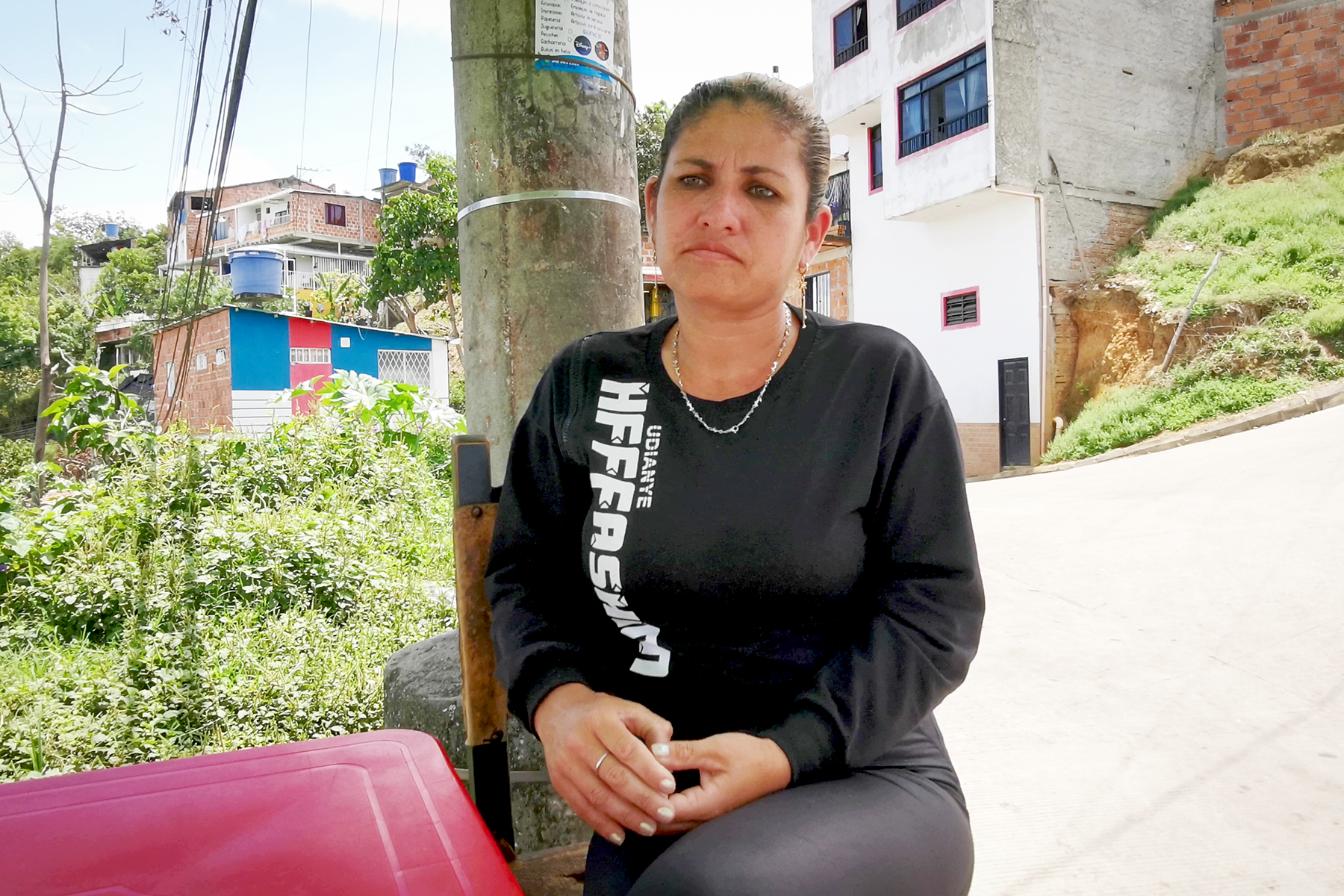
Marleivy, who is Venezuelan, pays for her rented home in Colombia with the help of a rent subsidy. She has found her host community to be respectful and supportive.



